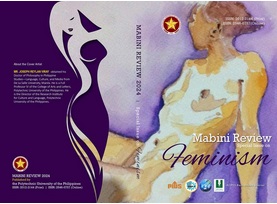Reflections on Misogyny and Women Doing Philosophy in the Philippines
DOI:
https://doi.org/10.70922/44vtqm72Keywords:
Filipina Philosophers, gender-based oppression, misogyny, Women Doing PhilosophyAbstract
In this paper, I argue that despite the prominent and progressive structure of the discipline of philosophy, it is not exempt from the perpetuation of the gender-based form of oppression. The fortunate ratio of women doing philosophy today obscures the extent to which misogyny is seen and felt. Even in what seems to be a gender-egalitarian setting like academia, the subtle, indirect, and sometimes unintentional verbal and behavioral offenses against women function as a mechanism of systemic oppression. It is a manifestation of the restrained form of misogyny that enforces the hierarchical, patriarchal order in academia. In this light, I have three goals in mind. The first is to initiate a conversation about misogyny in academia further; the second is to better understand the lived experiences of misogyny and sexism of Filipina Philosophers through the work of Kate Manne—the logic of misogyny; and the third is to reflect upon the importance of the foundation of the Women Doing Philosophy group in the Philippines and their response against misogyny.
Downloads
References
Downloads
Published
Issue
Section
License
Copyright (c) 2024 Jeniel P. Dasig (Author)

This work is licensed under a Creative Commons Attribution-NonCommercial 4.0 International License.
Articles published in the MABINI REVIEW will be Open-Access articles distributed under the terms and conditions of the Creative Commons Attribution-Noncommercial 4.0 International (CC BY-NC 4.0). This allows for immediate free access to the work and permits any user to read, download, copy, distribute, print, search, or link to the full texts of articles, crawl them for indexing, pass them as data to software, or use them for any other lawful purpose.


